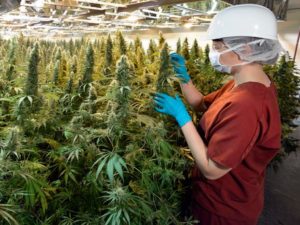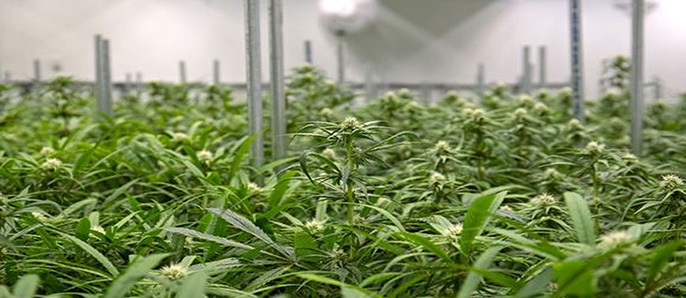 By Cristina Carpio
By Cristina Carpio
Carpio’s Corner
Canada has been trending all over social media since the Cannabis legalization took effect on October 17. Considered a historic moment for Canadians, the Cannabis act passed both chambers of Parliament in June. The Canadian legislation was promised by the country’s Prime Minister, Justin Trudeau out of concern for minors getting easy access to weed and criminals reaping profits. Cannabis can now be purchased from drug retailers regulated by the provinces or federally licensed producers nationwide. Canada is the 2nd country in the world to make cannabis legal after Uruguay in December 2013. In the United States, nine states including Washington D.C. have legalized marijuana and 30 states legally allow marijuana for medical use only. Even with limited availability in the U.S., the pot industry still took in $9 billion in sales in 2017 according to BDS Analytics. The Cannabis bill allows users to carry up to 1 ounce and grow up to 4 marijuana plants in their homes. The legal age is 19, but provinces can always change the minimum requirement. For minors, production, distribution or sale of cannabis is still considered illegal offense and same rules apply with driving under the influence of cannabis.
 But with any bill comes with stringent restrictions people should know. Users are not allowed to carry the substance when entering or leaving Canada. It is illegal and criminal charges will apply for lawbreakers. Airports all over the country also have posters up reminding passengers that no one is allowed to travel with cannabis when crossing international borders.
But with any bill comes with stringent restrictions people should know. Users are not allowed to carry the substance when entering or leaving Canada. It is illegal and criminal charges will apply for lawbreakers. Airports all over the country also have posters up reminding passengers that no one is allowed to travel with cannabis when crossing international borders.
Although the legalization of marijuana may take some time to meet recreational spaces, according to Dan Carter, CEO and Founder of Canadian Hemp Farmers Alliance, a lot of the licensed producers supplying prescribed marijuana are now stockpiling inventories and getting ready once it hits the recreational markets. “Legalization will bring about a lot of opportunities for food and beverage industries. The Canadian Hemp Farmers Alliance is currently working with the Ontario Ministry of Agriculture Food and Rural Affairs to help develop cannabis-infused foods, medicines, skin care and non-alcoholic beverages.” This new law is expected to inject billions of dollars to the economy says Carter.
But what does this mean for the restaurant industry? At the moment, no restaurants are legally allowed to sell cannabis or hemp infused food and beverages although things like hemp grain and oil, hemp protein baking flour are permitted ingredients in edible products. Canadian Hemp Farmers Alliance is looking to be Canada’s largest supplier of hemp products in the food and beverage industry as they want to change the way people eat and promote healthy, tasteful awareness. Right now, any food and beverage processor will need to obtain a cannabis processing license. The CHFA offers support to help with cannabis and hemp infusions. Same with restaurants. They would need to hold a cannabis license much like obtaining a liquor license to be able to serve alcohol in their establishment. CHFA is a farmer-owned and operated and considered one of the country’s great resource to build Canadian Agriculture. Carter says the legalization will mean a lot more profitable opportunities to come for restaurants who want to join the cannabis industry and this will only create alternative menus to cater to cannabis-friendly eaters. The Canadian food industry already had well over $120 billion in sales in 2017. This will only soar with the cannabis legalization and can also bring a new crowd and a whole new demographic of customers. There will also be more of an impact in particular to the province of Ontario who holds 50% of Canada’s population which is made up millennials and GenX who are the highest users of cannabis says Carter.
According to Statistics Canada, females have shown the highest users of edibles than men. Studies show 40% of women will purchase when they enter a store, where only 20% of men will purchase edibles. Shanna Munro, President and CEO of Restaurants Canada says at this stage, nothing has really changed for foodservice. Customers can still have the confidence to go to their favorite restaurants and have the same experience. In Canada, smoking of any kind is considered illegal in bars or restaurants. Some municipalities even prohibit smoking on public property or sidewalks. “Even before legalization, people show up on bars high, and now that cannabis use is legal, restaurant operators will just have to deal with it more but the liability has always been something they have to shoulder.” Munro adds that restaurants still have the same responsibility they’ve always had to their customers, this includes not serving alcohol to anyone who is already impaired. “ It is not yet possible for bars and restaurants to serve edibles or cannabis-infused food and beverages. It is something we have to wait and see if governments will allow.” Munro also says once permitted, some operators might be interested in taking advantage of opportunities and will have to decide whether or not it makes sense for their business model and brand.
Some issues that can arise within Cannabis entering the food industry will come mostly from parents and the government. According to the Hemp Alliance of Canada, there will be a lot of certain restrictions people would want to see once cannabis becomes more prevalent in the retail level such as ensuring child-proof packaging. Proper labelling must also be observed including an appropriate indication of CBD-THC%, Terpenoids, the ratio of THC to CBD, shelf life, warning labels so customers can make informed decisions about what product works for them.








